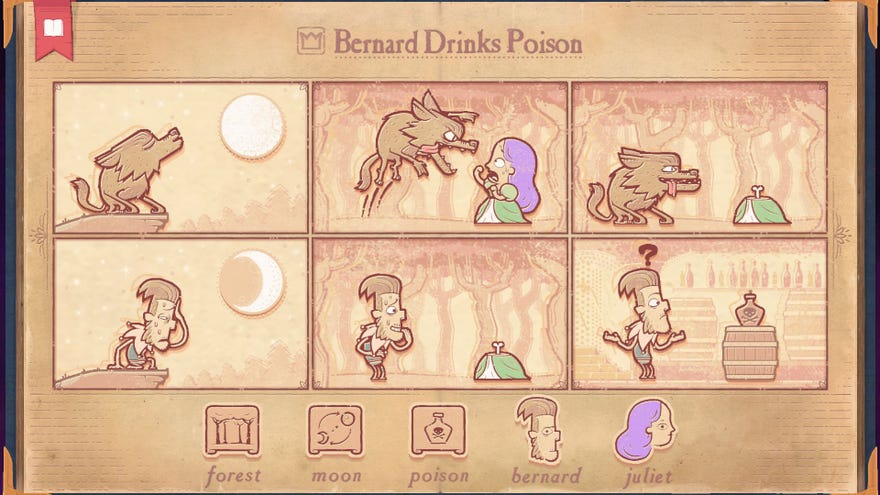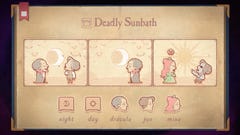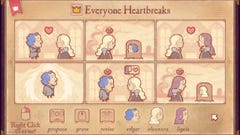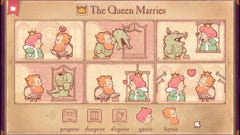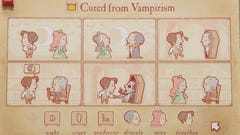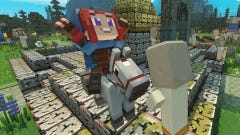Storyteller review: a delightful bookish puzzler that ends before you're ready
More of a novella
Storyteller is a make-your-own drama puzzle game, taking place on the pages of a book and within empty comic-ish panels on those pages. For each puzzle you're given a set of characters and scenarios (the Baron, the Knight, the Queen; a wedding, a kidnap, an execution) and are tasked with arranging them in a combination that fits the story title you're given (The Queen Marries). It's playful and cute, with surprising depth that draws inspiration from classic stories. It's also very short. I'd wager you'll have hunnerpercented Storyteller in two hours max, which will sound like mana from heaven to some, but may disappoint you if you've been waiting for Storyteller for over a decade.
That's not to say that Storyteller doesn't have more going on than it did 11 years ago. I found the runtime annoying because Storyteller seemed to end just as I was properly getting into it. Your tome of interactive tales is divided into 13 chapters, each with four puzzles, for a total of 52 challenges. The early ones teach you the basics of people falling in love, dying, being broken-hearted, but also free to marry again (characters get over the death of loved ones pretty quickly). It's here you learn that the order in which you do things is important, and that states must be reversed. If you kill someone off in one scene, you have to resurrect them later, or whenever you play them for the rest of the story they appear as a ghost. If the dastardly Baron disguises himself as a dragon, then a dragon he'll stay until you have him take the disguise off again.
Similarly, you learn what states people need to be in to perform certain actions. If you have the poison scenario you know someone either needs to be very sad or very angry; if Edgar's lover has died he'll drink it himself, but if she was murdered he'll poison her killer. It's impressive and complicated, but Storyteller is good at helping you along, both in adding new constraints that shape the puzzles - many characters will marry whoever you put in front of them, but the King is strictly hetero, so he'll only cheat on the Queen with the maid - and in the animations.
The pages of the book are yellowed and old, and the scenes you slot in match that background, giving a kind of washed out ink feel. They're just the stage for the characters, who are more colourful and seem almost like stickers or fridge magnets. Once you drop them in a scene they'll animate according to all the if-this-then-that's that you've built in the story so far. To go back to Edgar - who, by the way, looks like a little blue-haired Poe - if he finds out it was Isobel who killed his beloved Lenora, when presented with poison he will display a little thought bubble of Lenora while looking angry. If he has no idea, he'll stand then and do a kind of 'IDK?' shrug. The animations themselves tell you what you need to fix, or do next.
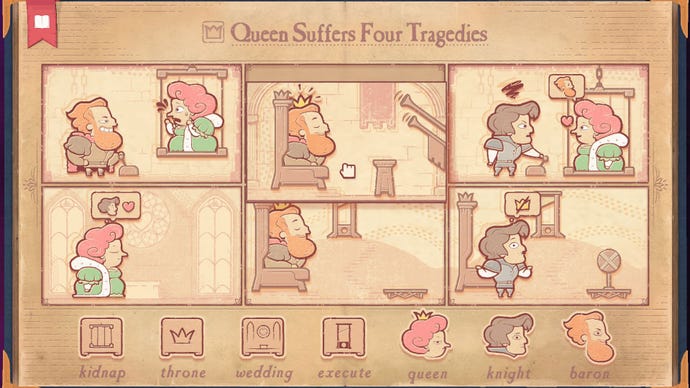
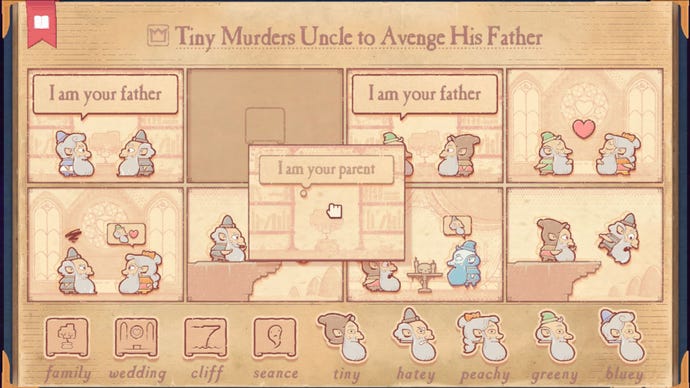
The characters and stories themselves help, too. In one, called Tiny Hamlet, you have to make a character avenge his father by killing his uncle. Okay: Hamlet is my framework, so I first need to define family relationships by one dwarf telling two others he's their father... then the uncle needs to kill his brother, and the easiest way to do that is have the female dwarf reject him, so first she needs to marry - and so on. This kind of gentle suggestion from the story names helps you solve the puzzle quite often. You'll also find yourself casting characters according to their names and demeanor. Hatey the dwarf doesn't technically have to be murderous, but... well... nominative determinism, old chap.
And again, this is how Storyteller tricks you, because you can get some extra achievements by playing against type, as some puzzles have bonus solutions. You can complete The Queen Marries pretty easily but The Queen Marries A Dragon might require a tad more lateral thinking. There's more than one way to skin a cat in Storyteller - and the cat-skinning animation would probably be quite charming, and mischievously funny.
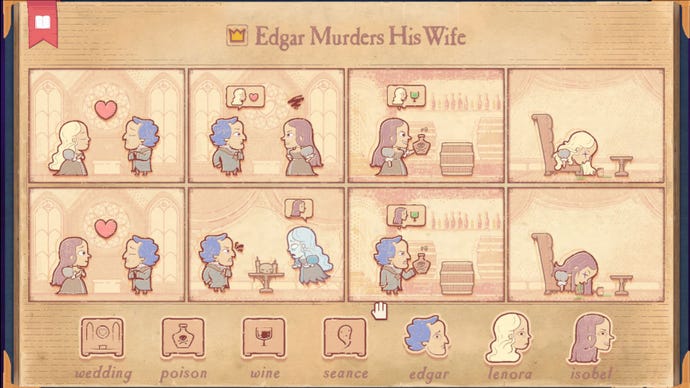
But, on that note there isn't anything quite as horrible in Storyteller. Despite the fact that you can, technically, make a werewolf eat someone, indulge in royal executions, see a butler shoot his duke (before being clapped in chains by a Holmesian detective), and punt many a king off many a cliff, I'd class Storyteller as a basically non-violent video game that would be tremendous fun to play with kids, swapping things around to see all the silly stuff that can happen. If you wrote out all the possible branches on the action tree of Storyteller it would be, I imagine, almost overwhelming to look at.
I was just getting into the harder puzzles when I twigged that my completion percentage in the front of the book was at 95. "Surely not!", I thought. I got properly stumped on a puzzle for the first time, only to discover it was the last one! I'm pretty sure I played levels in the Storyteller demo that didn't appear in Storyteller proper. Which isn't a cardinal sin or even that unusual in games, but it, along with the fact that the book in the game is marked Storyteller Tome One, leads me to suspect some DLC could be on the cards. Or pages. Whatever metaphor would work. Which is lovely in that I welcome more Storyteller, but if I'd had my druthers the more would have been... right now.
